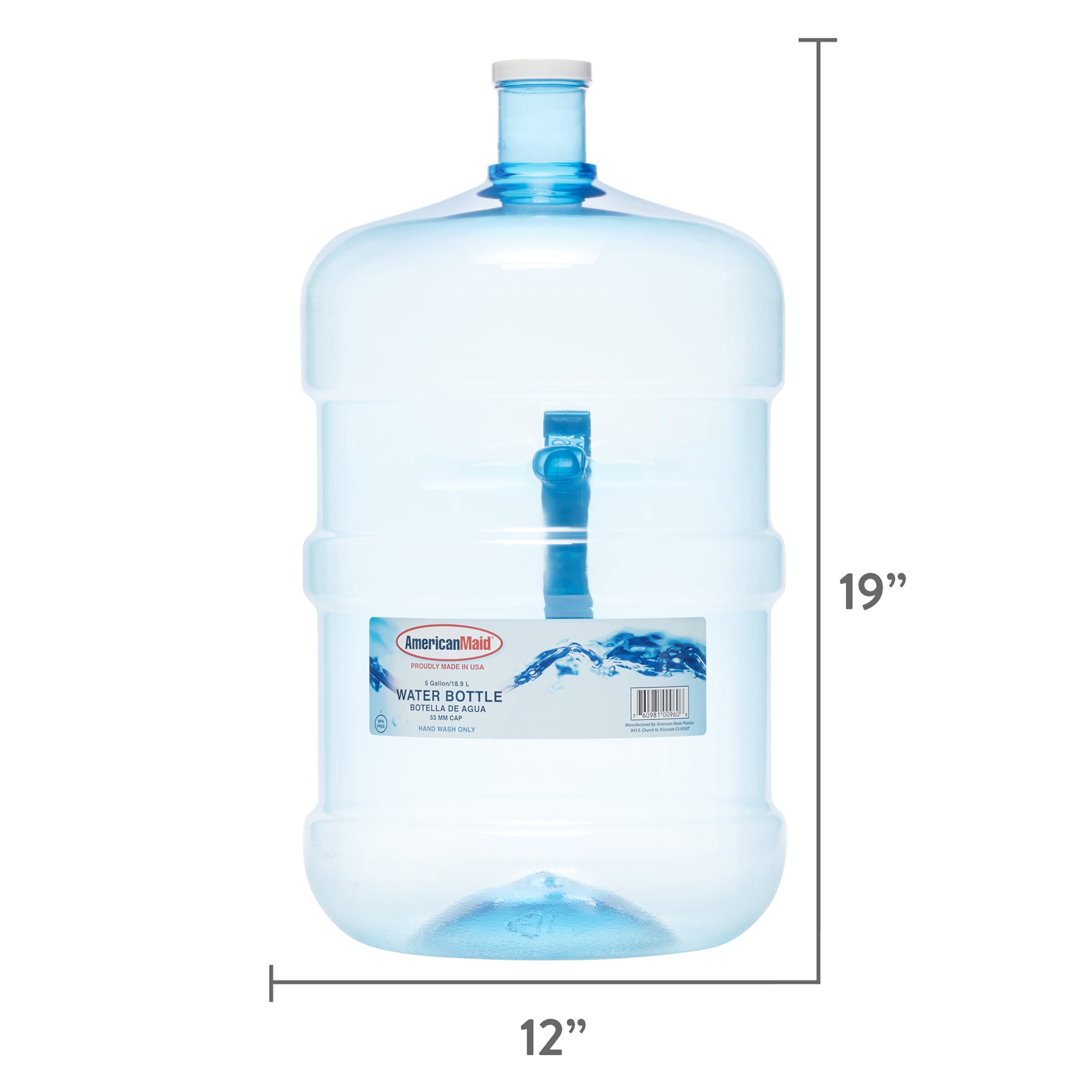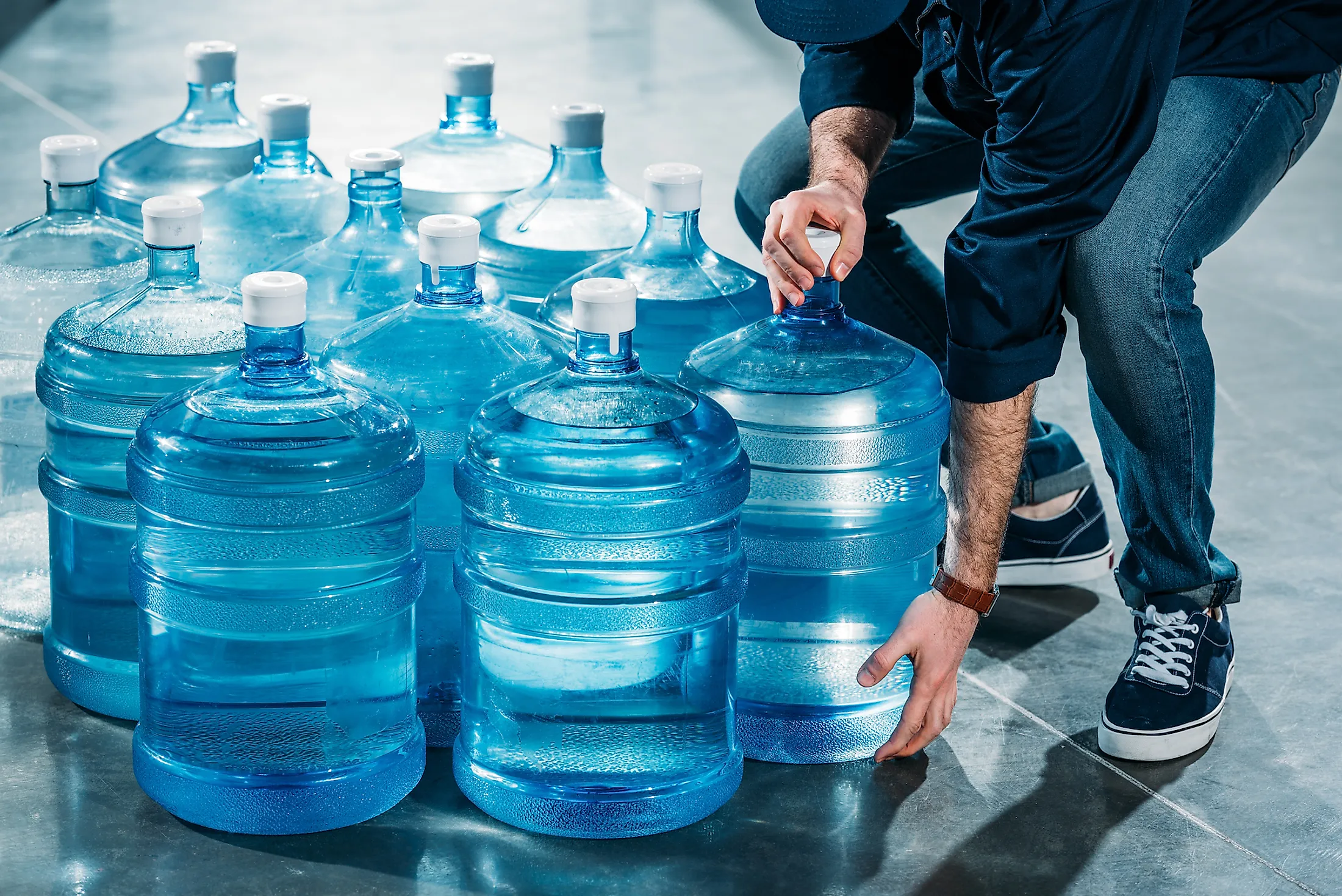How Much Does One Gallon Of Water Weigh? The Ultimate Guide
So, you're wondering how much does one gallon of water weigh, huh? Well, buckle up, because we're about to dive into the nitty-gritty of this fascinating topic. Whether you're a science enthusiast, a fitness freak, or just someone who's curious about everyday facts, this question has probably crossed your mind at some point. And guess what? You're in the right place to get the answers you need.
Water is everywhere, and it plays a crucial role in our lives. But have you ever stopped to think about its weight? It's not just about filling up your bottles or taking a shower; understanding the weight of water can help in so many areas, from cooking to construction. So, let's break it down and explore why this little fact matters so much.
Now, before we get too deep into the details, let's establish one thing: the weight of water isn't as straightforward as you might think. Factors like temperature, pressure, and even the container it's in can affect the final number. But don't worry, we'll cover all that and more. Let's get started!
- Trey Gowdy Nose Uncovering The Story Behind The Iconic Feature
- Ava Doyle Accident The Untold Story Behind The Headlines
Understanding the Basics: What is a Gallon?
First things first, let's talk about what a gallon actually is. A gallon is a unit of measurement used primarily in the United States and a few other countries. It's like the big brother of liters, and it's used to measure liquids, especially water. But here's the kicker – there are different types of gallons depending on where you are.
In the US, a gallon equals 128 fluid ounces, while in the UK, it's slightly larger at 160 fluid ounces. This difference might seem small, but it can make a huge impact when you're talking about weight. So, always double-check which gallon you're referring to before jumping into calculations.
Why Does the Type of Gallon Matter?
Well, my friend, the type of gallon matters because it directly affects the weight. A US gallon is smaller than a UK gallon, so naturally, it will weigh less. For example, a US gallon of water weighs approximately 8.34 pounds, whereas a UK gallon weighs around 10 pounds. That's a pretty significant difference if you're planning a road trip with a water-filled tank in your car!
- Laara Rose The Rising Star Redefining The Entertainment Scene
- Shane Dawson Proposal The Inside Story You Need To Know
How Much Does One Gallon of Water Weigh?
Alright, let's get to the meat of the matter. How much does one gallon of water weigh? Drumroll, please... A US gallon of water weighs about 8.34 pounds at room temperature. But hold on, there's more to this story. The weight can fluctuate based on factors like temperature and pressure. Crazy, right?
Water is densest at 39.2°F (4°C), and its weight will change as it gets hotter or colder. So, if you're measuring water in freezing conditions or boiling it for pasta, the weight will shift slightly. But don't worry, we'll break that down in the next section.
Factors Affecting the Weight of Water
Let's take a closer look at the factors that can affect the weight of water:
- Temperature: Water expands as it heats up and contracts as it cools down, changing its density and, consequently, its weight.
- Pressure: High-pressure environments can compress water, making it slightly heavier.
- Impurities: If your water contains dissolved minerals or other substances, it can add to the overall weight.
So, the next time someone asks you how much a gallon of water weighs, you can confidently say, "It depends!"
The Science Behind Water's Weight
Now, let's dive into the science of why water weighs what it does. Water is made up of two hydrogen atoms and one oxygen atom (H2O), and its molecular structure plays a big role in its weight. At a molecular level, water molecules are packed tightly together, giving it a high density compared to other liquids.
But here's the thing: water's density isn't constant. As the temperature changes, the spacing between water molecules changes too. This is why a gallon of water weighs more at 39.2°F than it does at 212°F (boiling point). Science is wild, isn't it?
How Temperature Affects Water's Weight
Temperature has a direct impact on water's weight. Here's a quick breakdown:
- At 32°F (freezing point), a gallon of water weighs approximately 8.34 pounds.
- At 212°F (boiling point), a gallon of water weighs around 8 pounds.
As water heats up, it expands, reducing its density and, therefore, its weight. This is why hot water feels lighter than cold water, even though the volume remains the same.
Practical Applications of Knowing Water's Weight
Knowing how much a gallon of water weighs isn't just a fun fact; it has practical applications in everyday life. From cooking to construction, understanding water's weight can make a big difference. Let's explore some examples:
In the kitchen, knowing the weight of water can help you measure ingredients more accurately. If a recipe calls for a gallon of water, you'll know exactly how much to use. In construction, engineers need to calculate the weight of water in tanks and pipes to ensure structural integrity. And if you're a hiker, knowing the weight of water can help you plan your trips more efficiently.
Water Weight in Everyday Life
Here are some real-life scenarios where knowing water's weight comes in handy:
- Cooking: Accurate measurements are key to perfect recipes.
- Gardening: Knowing how much water your plants need can save you time and effort.
- Traveling: Planning for water weight can help you pack lighter and avoid unnecessary baggage fees.
See? Water's weight matters more than you might think!
Common Misconceptions About Water's Weight
There are a lot of myths floating around about water's weight, and it's time to set the record straight. Here are a few common misconceptions:
- Water weighs the same everywhere: Nope! As we've discussed, temperature, pressure, and impurities can all affect water's weight.
- A gallon of water always weighs 8 pounds: Wrong again! That's only true at boiling point. At room temperature, it's closer to 8.34 pounds.
So, the next time someone tries to tell you water weighs the same no matter what, you can confidently correct them with your newfound knowledge.
Debunking Water Weight Myths
Let's debunk a few more myths while we're at it:
- Water in plastic bottles weighs less than water in glass bottles. (False! The container doesn't affect the water's weight.)
- Distilled water weighs less than tap water. (Not necessarily true. Impurities might add weight, but the difference is negligible.)
There you have it – myth-busting at its finest!
How to Measure Water's Weight Accurately
Now that you know all about water's weight, let's talk about how to measure it accurately. Here's a step-by-step guide:
Step 1: Get a reliable scale. A digital scale is your best bet for precision.
Step 2: Fill a container with exactly one gallon of water. Make sure it's measured accurately.
Step 3: Weigh the container with the water inside. Then weigh the empty container and subtract the weight to get the water's weight.
Voila! You now have an accurate measurement of water's weight.
Tools for Measuring Water's Weight
Here are some tools you can use to measure water's weight:
- Digital Scale: Perfect for precision.
- Graduated Cylinder: Great for measuring small volumes.
- Bathroom Scale: Works in a pinch for larger containers.
Choose the tool that best fits your needs, and you'll be measuring like a pro in no time!
Fun Facts About Water's Weight
Before we wrap up, let's talk about some fun facts about water's weight:
- A cubic foot of water weighs about 62.4 pounds.
- The average human body is made up of around 60% water.
- Water is the only substance on Earth that exists naturally in all three states: solid, liquid, and gas.
Isn't water amazing? It's no wonder it's so essential to life!
Why Water's Weight Matters
Water's weight might seem like a small detail, but it has a huge impact on our world. From shaping our planet to supporting life, water's properties are nothing short of miraculous. So, the next time you fill up a glass, take a moment to appreciate the science behind it.
Conclusion: Wrapping It Up
So, there you have it – everything you need to know about how much a gallon of water weighs. From the basics of gallons to the science behind water's weight, we've covered it all. Remember, the weight of water isn't fixed; it changes based on factors like temperature and pressure. But at room temperature, a US gallon of water weighs approximately 8.34 pounds.
Now that you're armed with this knowledge, why not share it with your friends? Or better yet, put it to use in your daily life. Whether you're cooking, gardening, or planning a road trip, knowing water's weight can make a big difference. So, go ahead and spread the word – water is fascinating!
And don't forget to check out our other articles for more interesting facts and insights. Thanks for reading, and happy learning!
Table of Contents
- Understanding the Basics: What is a Gallon?
- How Much Does One Gallon of Water Weigh?
- The Science Behind Water's Weight
- Practical Applications of Knowing Water's Weight
- Common Misconceptions About Water's Weight
- How to Measure Water's Weight Accurately
- Fun Facts About Water's Weight
- Conclusion: Wrapping It Up



Detail Author:
- Name : Bert Feil
- Username : brenna43
- Email : jaskolski.josiane@rice.com
- Birthdate : 1997-05-05
- Address : 2216 Salvatore Land Apt. 662 Satterfieldbury, NJ 15075-9478
- Phone : (929) 748-4646
- Company : Murphy, Hackett and Fahey
- Job : Record Clerk
- Bio : Sit culpa atque debitis ut. Quisquam placeat aut quia sit possimus. Sed non consequatur nihil itaque. Voluptatem voluptatem animi voluptates totam. Reprehenderit sunt aut aut illo eius inventore.
Socials
facebook:
- url : https://facebook.com/dessiepredovic
- username : dessiepredovic
- bio : Neque dolores eum pariatur tempora deserunt quam est qui.
- followers : 2806
- following : 2391
twitter:
- url : https://twitter.com/predovicd
- username : predovicd
- bio : Odio sit rerum sunt ut. Incidunt laboriosam laudantium omnis voluptas rem. Vero dolorem eos quis ipsum commodi sunt beatae.
- followers : 601
- following : 2377